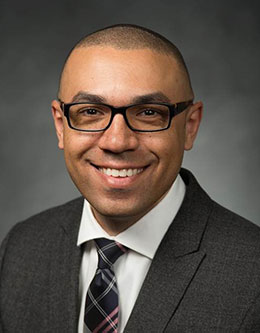“To counter racism and the pride and greed that are associated with it, the King of Kings invites each of us in love and magnanimity to “come unto me all ye ends of the earth, buy milk and honey, without money and without price.” The Savior invites all of us to share in His abundant gifts of love and redemption, in which racial and economic status are inconsequential, in which each of us can partake of His nourishing word, and in which we are inherently equal. Jesus Christ taught us that we too should be loving and generous.
Yet the adversary attempts to distort the great commandment through pernicious forms of racism. He attempts to convince us that if we want a world in which race is no longer a contributing factor to how various groups are treated, then we need to stop focusing on race. This perspective might work if we lived in an ideal society without a history of slavery, convict leasing, and lynching. Nevertheless, we live in a fallen world, a world that has historical sins that reverberate into today. For example, social scientists have observed that historical slave concentrations in the southern United States are related to contemporary patterns of racial inequality in that same region of the country.
Therefore, to pretend that race is unimportant by saying, “I don’t see race,” or to falsely diminish the impacts of racism on the lives of Heavenly Father’s children does nothing to stop racism that occurs in education, in the criminal justice system, and in housing and employment—all of which affect the opportunities of families and have their roots in a past beset by deep and far-reaching racial injustice. To pretend that race is not important does not show compassion for the experiences of others who, by virtue of their experiences with racism, know that it is. Christ Himself asks us to remember and know His suffering—to touch the scars on His hands and feet. He does not ask us to deny another’s pain but to know it and touch it. To deny the genuine pain of another is to deny the very suffering Christ felt for them privately in the Garden of Gethsemane and publicly upon the cross at Calvary.
It is easy, and largely innocent, to attempt to not see race with the hope that it will help us treat individuals fairly and view them as children of God, full of divine potential. Recognizing an individual’s divine identity is holy, but denying their racial identity can lead to negative consequences. Of course, the goal remains to create a society in which individuals are judged by the content of their character, but we cannot get there by ignoring the color of their skin. Attempting to not see race masks from our view the many ways that individuals are given or denied opportunities in society solely because of their race. For example, researchers have sent fictitious résumés to help-wanted ads, with the résumés randomly assigned to individuals with African American–sounding names like Rasheed or Jamal and White-sounding names like Brett or Todd, only to observe that résumés with White-sounding names were much more likely to receive a callback.27 Consequently, attempting to not see race lessens our ability to see the distinctive challenges of our sisters and brothers and limits our capacity to serve them in ways that are most beneficial.
…What are we to do then?…we can be full of gratitude toward God for the astounding diversity of people, their distinctive talents and gifts, and their unique cultural histories; each of them contributes to the mosaic that is the human family.
…We can praise God for commanding us to forgive all,29 including those who committed acts of racial violence in the past and those who continue to espouse racist rhetoric today. Forgiveness for these individuals is fostered by understanding that many of them, both past and present, have followed the flawed traditions of their fathers, flaws that were nurtured by the author of all sin, the adversary. To be clear, forgiving these individuals does not mean that we condone such behavior. Indeed, we cannot rob justice. Forgiveness means that we see these individuals as children of God and that our hearts are loving and pure toward them. Also, in our silent prayers we can give gratitude for our brave brothers and sisters who have sacrificed their lives so that we might live in a more racially just society.
With the second component of the great commandment, we are to love our neighbors as ourselves. If we are to love our neighbors as ourselves, we are to recognize their needs, their pains, and their hopes and dreams. We are helped by knowing their cultural heritage, but if we have not had the privilege of learning their cultural history, we can rest assured that their people have experienced wonderful triumphs and encountered profound suffering. This way of viewing others leads us to see them as being as full, dynamic, and real as we are.”

